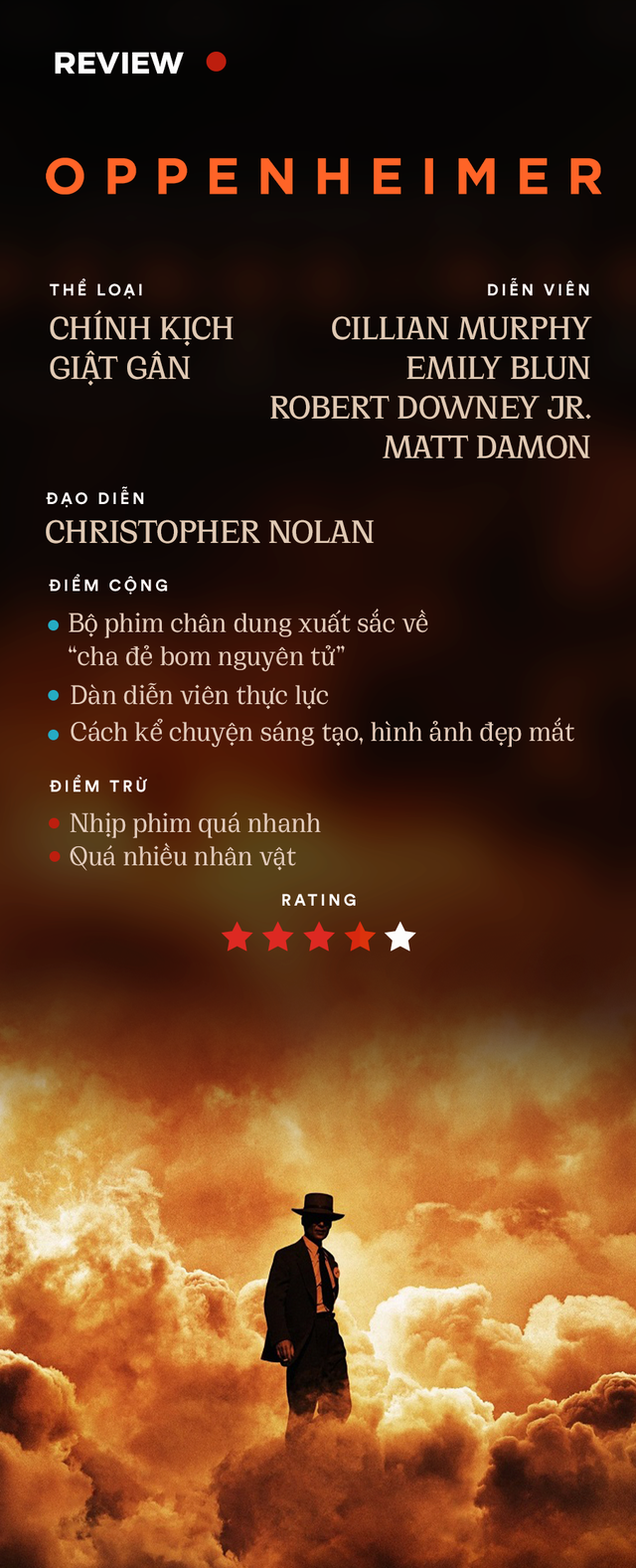On August 6, 1945, the Little Boy atomic bomb was dropped on the Japanese city of Hiroshima by the United States, marking the first time nuclear weapons were used in war. A few days later, a second Fat Man hit on Nagasaki essentially ended World War II, forcing Japan to surrender unconditionally. However, these attacks also started an equally terrifying new era known as the “Atomic Age” and the arms race shows no signs of ending.
Scientist J. Robert Oppenheimer – who played a key role in the successful study of the atomic bomb – was largely blamed for that tragedy. The nickname “father of the atomic bomb” became a title and also a punishment associated with him until now. Based on the book American Prometheus (God Prometheus US version) by authors Kai Bird and Martin J. Sherwin, director Christopher Nolan decided to retell the story of J. Robert Oppenheimer on the silver screen.
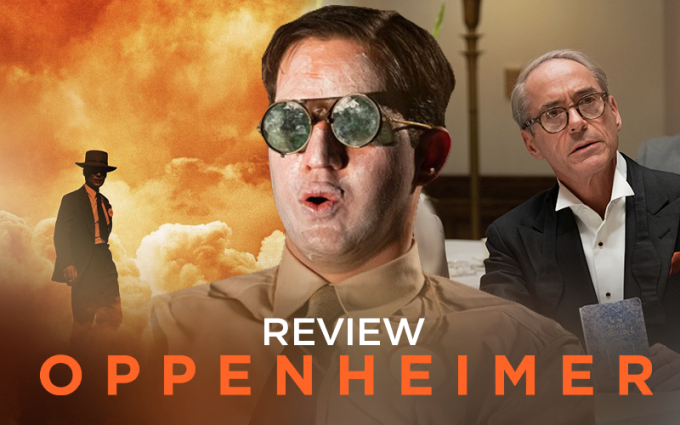
A gritty biopic about the dark side of human nature
In Greek mythology, Prometheus was a god who contributed to the creation of humans and stole fire from Olympia to bring down for mankind to use. His actions led to the grisly punishment of being eaten by an eagle every day. The story of Prometheus became an inspiration for Christopher Nolan when he wrote a screenplay about J. Robert Oppenheimer – who made a scientific leap for the world, in exchange for a heartbreak until death.
In true Nolan style, the story is not told like an ordinary biopic, but rather a sequence of prominent events in the famous scientist’s life, arranged discretely not in chronological order. However, the audience can divide into three main stages: Oppenheimer pre-Manhattan; scientist while studying the atomic bomb and his psychological struggles after the two bombs were dropped on Japan.
Oppenheimer really is a movie that touches on big issues with a grand epic. However, we also do not need to go too deeply into the story of the two atomic bombs or the events surrounding it to enjoy. Oppenheimer. The reason is not because that knowledge is not important, but because what is interesting here lies in the way the director tells this extremely complicated historical story and what he wants to talk about.
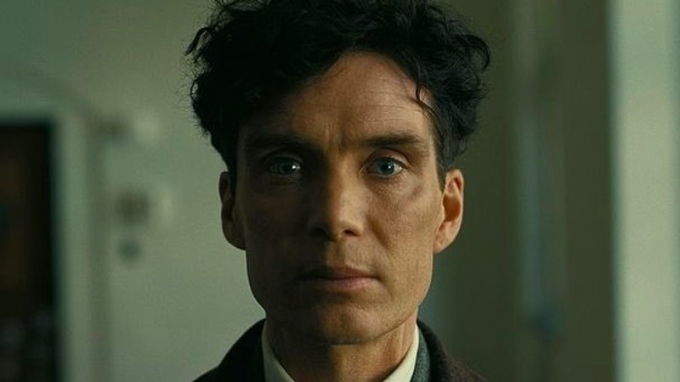
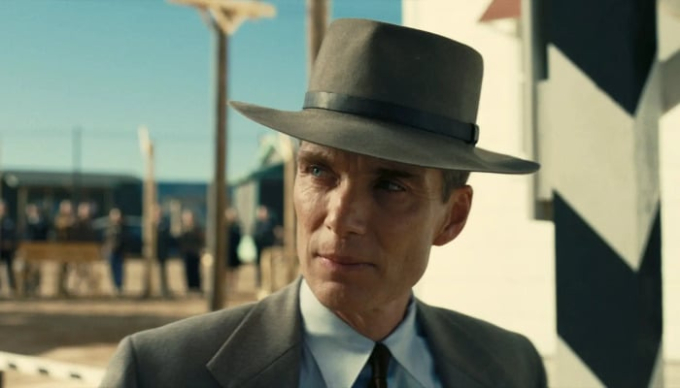
Cillian Murphy as scientist J. Robert Oppenheimer.
Like many other prominent directors, Christopher Nolan borrows the story of the “father of the atomic bomb” to talk about more universal issues. In an interview with Vulture, director Nolan said Oppenheimer I want to talk about consequences rather than recounting what happened. That is also the reason why the movie does not stop after two bombs are successfully dropped on Japan.
If you pay attention, the audience can realize that the main story line is actually the questioning session of the US government with J. Robert Oppenheimer about his opposition to continuing nuclear weapons development activities. Meanwhile, stories about the scientist’s past as well as his Manhattan project direction only appear on the screen in the form of flashbacks, narratives.
The tragedy of J. Robert Oppenheimer is that he devoted his life to science. As a result, his and his colleagues’ work is remembered as a crime that cannot be washed away or appeased by noble medals and lavish banquets. Oppenheimer’s punishment was the same as that of Prometheus, when daily tormented like an eagle eating his liver.
Many argue that the connection between the two characters is a warning by Nolan about the downside of developing science and technology. As more and more power is possessed in their hands, humans become the most obvious threat to the destruction of humanity and the planet.
However, the dark sides Christopher Nolan wants to emphasize may lie in people themselves, not in science. That is most clearly shown in the final detail of the film, when the director reveals the meeting between J. Robert Oppenheimer and Albert Einstein. There, Einstein warned Oppenheimer that he would regret what the bomb did. However, the “father of the atomic bomb” simply replied: “When I came to you with those equations, we thought we could create a chain reaction that could destroy the whole world. I I believe we made it.”
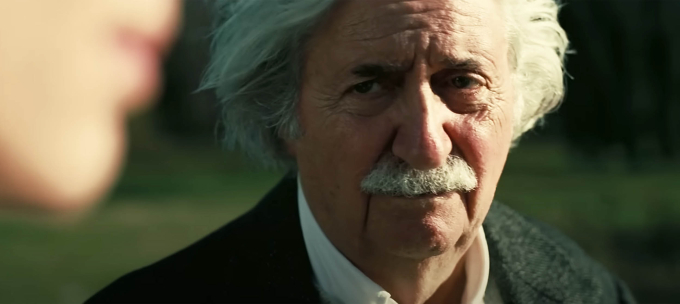
The character Albert Einstein is played by Tom Conti.
The meeting between Albert Einstein and J. Robert Oppenheimer was a creative detail of Christopher Nolan. In real life, the person the “father of the atomic bomb” came to for advice was Arthur Compton – an important physicist of the Manhattan project. Therefore, when set as the ending scene of the film, Christopher Nolan certainly conveys many of his thoughts and views.
Oppenheimer’s words made Albert Einstein completely change his attitude, from being happy to shocked, and quietly walked away. This episode is also the ending knot frequently used by Christopher Nolan in his works. It seems to imply that Oppenheimer fully predicted the possible consequences of his research.
However, he still does it defiantly according to the urges of his own dark sides, be it his arrogant ego wanting to show himself or his desire to become a god that enlightens the world, like Prometheus himself. In the end, the god Oppenheimer becomes perhaps the “god of death,” “the destroyer of worlds,” as he reads from the Bhagavad Gita at the beginning of the film.
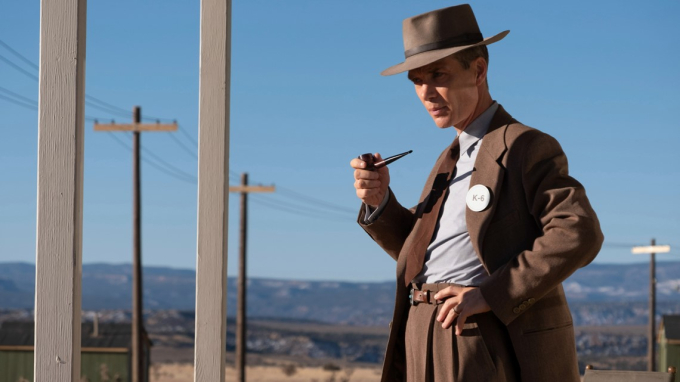

Oppenheimer’s life in the film is described as full of glory but not without misfortune.
A “flexing” of filmmaking techniques
More than just a director, Christopher Nolan is also known as a revolutionary in the field of cinema. His work does not stop at storytelling, but also experiments on techniques and filmmaking methods. After Oppenheimer launched, many people compare it with Citizen Kane – Orson Welles’ classic project has been likened to a textbook for Hollywood filmmakers for decades.
Oppenheimer told in a non-linear fashion – a style familiar throughout Christopher Nolan’s career. The events in the film are arranged not in chronological order but are installed according to the director’s purpose. This is both an interesting thing and a challenge for the team itself in a project with a complex scenario like Oppenheimer. At times, the audience may feel that the director is just listing the facts in a bulleted fashion. However, this narrative also promotes its strengths at certain times when it makes it easier for viewers to understand the fate and motivations of the characters in the film.

Director Christopher Nolan at the film’s premiere.
Like the time of work Memento (2000), with Oppenheimer, Nolan uses color to make it easier for the audience to grasp the film’s storyline, which is told overlapping, not in chronological order. In it, the segments with color are when the story follows the main character. In contrast, the black and white segments are when the film is told from the perspective of the character Lewis Strauss (played by Robert Downey Jr.) – who is built as the main villain.
To realize that intention, Christopher Nolan worked with the studio to research a new type of black and white film specifically for IMAX cameras. This results in movie scenes with excellent picture quality in Oppenheimer.
It’s hard to imagine any other director choosing to deliver an already informative script to an audience in an equally complex way. However, Nolan has exerted his “magic” to strike a balance in creating a story that is both challenging and interesting to keep viewers’ attention.
The acting of the talented cast is also a bright spot of Oppenheimer. Cillian Murphy really has an ecstatic incarnation as the “father of the atomic bomb”. Not only similar in shape, the Irish actor gives the character a lot of personality on the screen. Oppenheimer appears to be neither the hero nor the villain of the whole story. At the same time, he is both the perpetrator and the victim of his own ambition.
Oppenheimer’s transformation throughout the film is subtly portrayed by Cillian Murphy. Initially, the character appeared in the form of a talented physicist, respected from a young age. He is arrogant, full of character flaws. When working on the Manhattan project, Murphy showed the character as a true leader, wise and brave. In old age, when he has experienced more life, the character is full of regrets and accepts the punishment worthy of the consequences he caused.
Another person who shines in terms of acting in the film is Robert Downey Jr. as someone who is always jealous of Oppenheimer’s talents and achievements. Meanwhile, Matt Damon, Emily Blunt and Florence Pugh also scored points in the scenes they appeared in, although the acting ground was not too much.
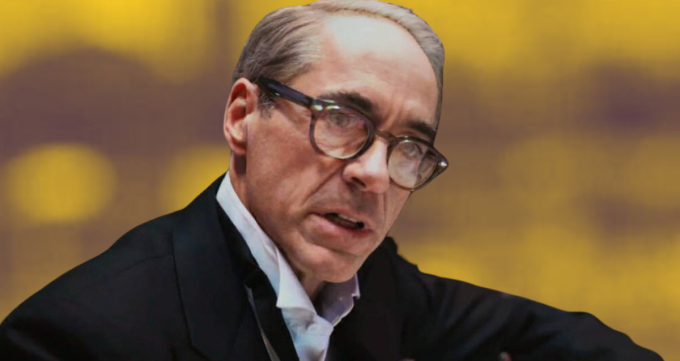
Robert Downey Jr. as the villain of the movie.
Scoring: 4/5
Nolan succeeds in making this layered, historical and political story appealing to a mass audience. However, the director’s penchant for self-indulgence complicates matters, in part making the film sometimes unnecessarily troubling. Non-linear storytelling sometimes makes Oppenheimer’s episodes split and disjointed. The tempo is too fast and the use of too many characters and too much dialogue also makes the movie more difficult to follow.
